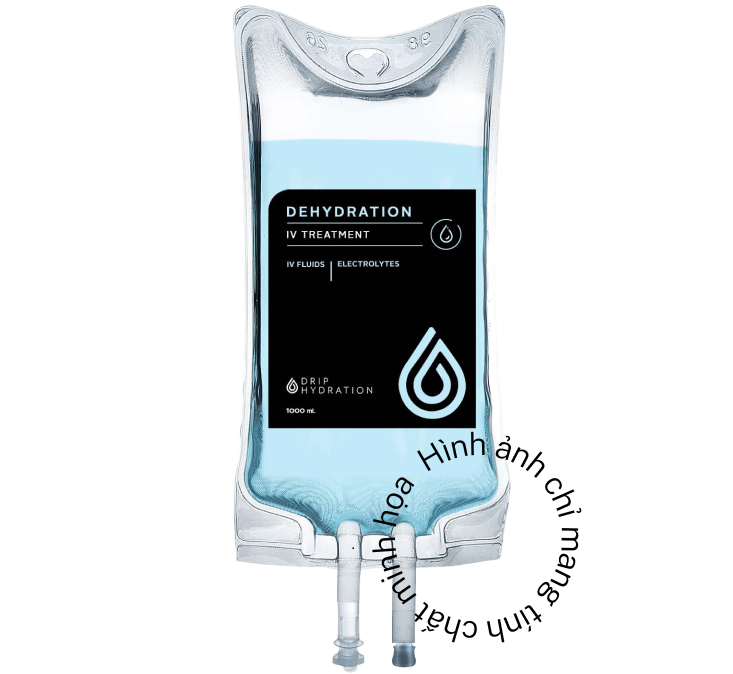Dehydration is frequently encountered in individuals with demanding schedules, those engaged in vigorous physical activity, those with inadequate fluid intake, or patients in recovery from illness. The body exhibits the following clinical signs of dehydration:
Decreased urine output and volume: Urinating only 2-3 times per day or not urinating for several hours can indicate dehydration.
Dark and concentrated urine: When adequately hydrated, normal urine is colorless, clear, and dilute. In contrast, when dehydrated, urine becomes dark and more concentrated than usual.
Dry and lackluster skin: Dehydration often manifests as dry, dull skin.
Dry mouth and bad breath: Dehydration reduces saliva production, leading to dry mouth and bad breath.
Headaches, dizziness, vertigo, and tinnitus: Dehydration, including in the brain, can lead to headaches, particularly when moving. Additionally, reduced blood circulation due to dehydration can result in dizziness, vertigo, and tinnitus.
Hunger and sugar cravings: Hunger can be a sign of dehydration, as the body's stored energy becomes difficult to release, causing feelings of hunger and cravings for sugar, a quick energy source.
Constipation: Water plays a critical role in digestive health. Adequate hydration is essential for proper bowel function, so constipation is a clear signal that the body is not receiving enough water.
Low blood pressure and increased heart rate: Dehydration reduces blood flow and circulation, leading to hypotension (low blood pressure). An increased heart rate is a sign of severe dehydration.
Muscle fatigue and cramps: Dehydration, or imbalances in electrolytes such as sodium and potassium, can cause muscle fatigue and cramping.
There are several ways to replenish water and electrolytes through oral intake to improve dehydration, such as drinking mineral water, coconut water, or oral rehydration solutions (sugar-salt solution), etc
However, during dehydration, the body also loses important minerals and electrolytes, which affects metabolism and other physiological processes. Therefore, it is essential to replenish both water and electrolytes/minerals simultaneously to restore balance.
Dehydration requires immediate and rapid replenishment to ensure the body functions smoothly. Therefore, intravenous hydration provides an instant solution, quickly restoring fluid balance in the body in an effective and comprehensive manner.
The Dehydration Drip IV therapy consists of a blend of fluids and electrolytes administered intravenously. With Dehydration Drip IV at Drip Hydration, your body can optimize hydration, making the replenishment of fluids and micronutrients highly efficient. This method ensures rapid restoration of water balance, leaving you feeling refreshed and rejuvenated, as if revived.


Due to the nature of my work, I frequently travel for both professional and social engagements, which often leaves me feeling fatigued, nutritionally depleted, and severely dehydrated. In such times, the medical team has been my lifesaver, replenishing my hydration and electrolytes with the Dehydration Drip IV therapy, making me feel revitalized and refreshed,” said Miss Ngọc Châu, a VVIP Member and a big fan of the Dehydration IV therapy offered by Drip Hydration Vietnam
If you feel dehydrated due to insufficient water intake, outdoor activities, alcohol consumption, or are recovering from illness, visit Drip Hydration to replenish essential minerals and fluids, alleviating symptoms and leaving you feeling revitalized and refreshed. The therapy is tailored to each individual's condition, with close consultation and supervision from doctors and medical experts.
86
Useful article?
Useful article?
86
Useful article?